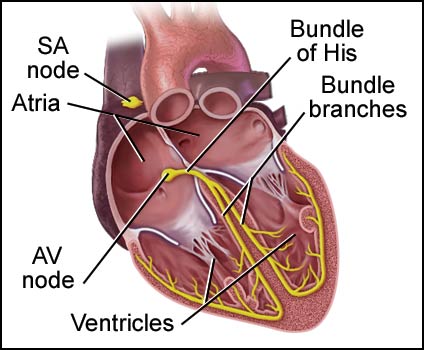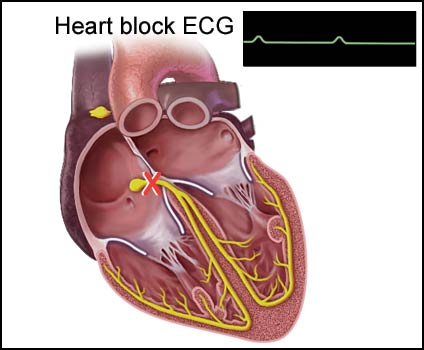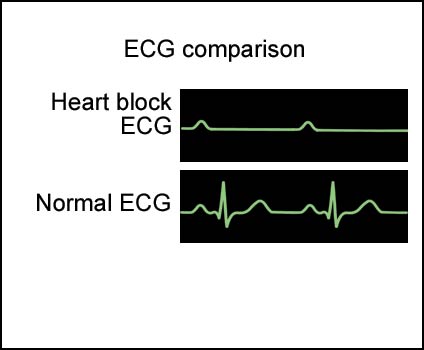
Heart Block
Heart block is an arrhythmia in which electrical signals traveling from the atria to the ventricles are stopped or delayed.
The electrical system of the heart is made up of several parts that communicate with one another to signal the heart muscle fibers when to contract (see fig. 2). The SA node starts the signal causing the atria to contract. This signal travels through the AV node and on to the bundle of His, bundle branches, and Purkinje fibers causing the ventricles to contract. The flow of electrical signals is what produces a normal heartbeat (see fig. 2).
In heart block, the normal electrical signals are either delayed or stopped as they travel from the SA node through the atria to the AV node and the ventricles (see fig. 3). As a result, the heart may beat too slowly.
Figure 1: Parts of the electrical system of the heart.
Figure: Normal flow of electrical signals through the heart.
Figure 3: Heart block.
Visit Medmovie.com Website for more information.



